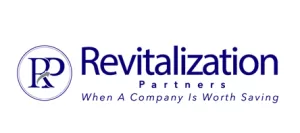 While Revitalization Partners (RP) continues to see an increase in the number of inquiries related to distressed companies and receiverships, we have also seen an increase in receiverships occurring as a result of partnership disputes.
While Revitalization Partners (RP) continues to see an increase in the number of inquiries related to distressed companies and receiverships, we have also seen an increase in receiverships occurring as a result of partnership disputes.
The significant difference between receiverships relating to distressed companies and those that have partnership disputes is that partnership disputes are typically solvent companies, are profitable and are consistently generating cash flow.
The receivership is typically originated by a judge or a business partner that has expressed grievances against their partner for alleged mismanagement, fraud, or other misbehavior that they are unable to control.
DISPUTES BETWEEN PARTNERS …
In light of this, we thought we would share another story as part of our ongoing series “Tales from the Receivership Trail” reflecting our experience serving as court-appointed receivers for a company that had encountered disputes between operating partners.
 RP was referred by a trusted resource to one of the partners of the company (LLC) that manufactured compost and sold the product to gardening stores and wholesale gardening companies.
RP was referred by a trusted resource to one of the partners of the company (LLC) that manufactured compost and sold the product to gardening stores and wholesale gardening companies.
The company was organized as a limited liability company and was owned 50% by one family (A) and 50% by another family (B). The LLC was a member-managed LLC and was managed by family B.
COMPLICATING FACTORS …
There were a number of complicating factors relating to the operations of the business as both families had outside business interests that were doing business with the LLC.
- For example, family A sold raw materials to the LLC for the purpose of manufacturing compost.
- Family A also owned two companies that purchased composite material from the LLC to sell independently to other companies.
- Furthermore, family A leased heavy equipment to the LLC. Finally, family B owned the land that the LLC operated on and leased the property to the LLC.
CONFLICTING INTERESTS …
Obviously, both families had conflicting interests as it related to the operations of the LLC, and that set up several critical areas where any conflict between the members could seriously jeopardize the operations of the LLC.
During the period preceding the receivership, the LLC was profitable, however, a series of actions were taken by both families that ultimately jeopardized the solvency of the LLC.
 One example of this was the fact that accounts receivable from companies owned by family A were not paid on a timely basis, thereby causing a reduction in cash flow.
One example of this was the fact that accounts receivable from companies owned by family A were not paid on a timely basis, thereby causing a reduction in cash flow.
This resulted in the LLC delaying payments to a second company owned by family A as well as being late paying rent due to family B.
Given that one of the companies owned by family A provided the LLC with the raw materials for the compost material as well as being the purchaser of the finished compost material from the LLC, family B stopped accepting raw materials from the company managed by family A, which effectively shut down the operations of the LLC and jeopardized its ability to continue operations and pay its debts.
 Finally, the LLC’s secured lender declared a default because of a cross-default provision in the loan agreement on any other loan held by the secured lender for either of the families.
Finally, the LLC’s secured lender declared a default because of a cross-default provision in the loan agreement on any other loan held by the secured lender for either of the families.
Family A defaulted on one of the unaffiliated loans and the secured lender subsequently declared a default on the LLC.
APPOINTED TO CONTINUE OPERATIONS …
As a result of these issues, family B asked the court to appoint a receiver to control the assets of the LLC and continue operations. After being appointed receiver of the LLC, RP immediately took control of the operations and the books and records of the company.
 RP’s main objective was to continue operations of the LLC and to sort out the differences between the two families as well as to resolve those conflicts to the satisfaction of the court.
RP’s main objective was to continue operations of the LLC and to sort out the differences between the two families as well as to resolve those conflicts to the satisfaction of the court.
Given that RP acting as the receiver was an independent third party, we immediately took action to resume operations of the LLC, began accepting raw material from family A and worked with family B to continue to operate the business.
Another immediate priority was to meet with both families to understand the source of the various conflicts and to develop a plan that would be acceptable to the court and both families as well as the secured lender.
STABILIZE OPERATIONS …
Once operations recommenced, the LLC was able to generate positive cash flow and to pay its expenses in a timely fashion.
 Concurrently with stabilizing operations, RP met with the families and gained an understanding of the source of their grievances and developed a plan to deal with them.
Concurrently with stabilizing operations, RP met with the families and gained an understanding of the source of their grievances and developed a plan to deal with them.
Given that family B had attempted to purchase family A’s interest in the LLC prior to the receivership, we determined this was most likely the fastest path to resolving the dispute.
After several months of negotiations family A agreed to sell their LLC interest to family B. After the agreement was executed, the receivership was terminated by the court and family B took over operations of the LLC.
The secured lender’s default was also resolved because of the sale of family B’s purchase of family A’s interest in the LLC and as a result, the LLC was no longer in default.
RP was able to resolve the disputes and terminate the receivership within three months of being appointed.
LESSONS LEARNED …
 If there are any lessons to be learned from this story, other than making sure you know who you are entering into a partnership with, it would be to avoid entering into a 50%/50% voting agreement with an LLC without some independent checks and balances being interjected into the process.
If there are any lessons to be learned from this story, other than making sure you know who you are entering into a partnership with, it would be to avoid entering into a 50%/50% voting agreement with an LLC without some independent checks and balances being interjected into the process.
Also, avoid entering into an LLC agreement where there are any outside interests that have the potential to cause a major disruption to the business.
Also, if a major dispute does arise in a business, make sure that an independent advisor is brought in quickly to help sort out the issues, prior to reaching a level of insolvency and the ultimate demise of the business.
Revitalization Partners specializes in improving the operational and financial results of companies and providing hands-on expertise in virtually every circumstance, with a focus on small and mid-market organizations. Whether your requirement is Interim Management, a Business Assessment, Revitalization and Reengineering, a State Receivership or Bankruptcy Support, we focus on giving you the best resolution in the fastest time with the highest possible return.



